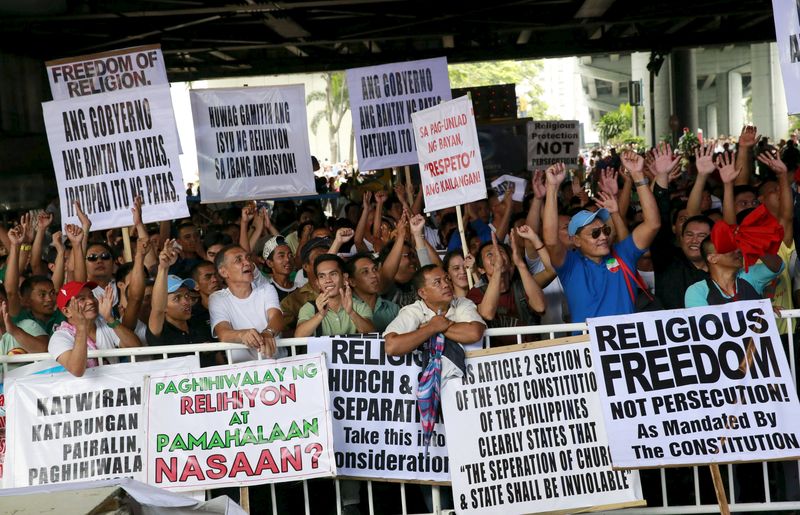MANILA (Reuters) - Thousands of members of a Christian group occupied a busy highway in Manila for a second night on Saturday, protesting against what they say is government intrusion in church affairs.
Police said about 1,700 people converged on the highway at around 1200 GMT on Saturday, but officials of the Iglesia ni Cristo (Church of Christ), or INC, said the number had reached 8,000. Demonstrators raised fists and chanted "Hustisya" (Justice).
Leaders of the INC, which has about two million followers, said more members from all over the main island Luzon were set to join the crowd on EDSA highway, site of several rallies in the past including "people power" revolts that toppled two presidents.
The INC, a powerful group which politicians have courted in the past because its members are known to follow their leaders' advice and vote as a bloc, is facing its biggest controversy after some of its leaders were expelled amid infighting over the use of church funds.
One dismissed minister filed an illegal detention case with the Justice Department that could result in the arrest of INC leaders.
Members said the dismissal of the minister was a disciplinary case within the church which the government should not meddle with, given the constitutional provision upholding the separation of church and state.
"Based on the actions of the secretary of the Department of Justice, there is interference in the doctrine, rules and discipline of the Iglesia ni Cristo," Edwil Zabala, INC
spokesman, told the crowd on the highway.
"They want to jail our ministers. We will not allow this."
Presidential spokeswoman Abigail Valte said there was no basis for INC's claims because the Justice Department had yet to act on the illegal detention case, filed days ago.
Valte said President Benigno Aquino had given instructions to ensure public safety during the protest.

The INC said the protest was also aimed at dispelling rumours of divisions within the church. Political analysts said the move was the group's way of showing it was a force to reckon with, ahead of presidential polls set for May 2016.